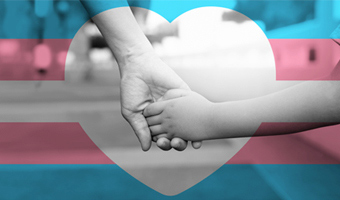
How many times have you promised yourself: this time I will succeed? This time I will keep to my diet; exercise more; stop smoking—all of the above.
Deciding to take action to improve your health is an essential step. Unfortunately, there is a massive gap between understanding the need to change behaviors and successful behavior change. From the Linda Joy Pollin Cardiovascular Wellness Center for Women at Hadassah Hospital Ein Kerem comes this guideline of ways that will help you bridge the gap—and ensure your improved health.
The Pollin Center uses tools that are based on cutting-edge behavioral science. They are simple, free, and don’t require any outside help. You can begin to use them now. Keep in mind that these tools are only effective if you are honest with yourself and if you document your goals or talk through them with someone.
Step One: Define Your Goal
The chosen goal must be
- Detailed, specific, and “bite-size” to ensure consistency
- Realistic for YOU
- Include time, duration, location, and with whom (if relevant)
Reaching a small goal again and again gives us a sense of accomplishment and increases our capacity and motivation to do more. It’s hard to maintain a big goal, and it’s even worse to set a goal that is not reachable. If you want to exercise every day, start with the goal of walking 20 to 30 minutes twice a week. Pick the days, exact time, and walking partner (even if it’s a phone buddy). Once you have this first goal in your schedule, you can increase the duration, number of days, and even intensity (i.e., faster or uphill). For example, the goal could be walking for 30 minutes on Sundays and Wednesdays, at 10 am, with your friend Sarah.
Step Two: Identify Obstacles
It is important to identify elements that may prevent you from achieving your goal. To do so it’s important to examine what you must do/have in order to complete the goal. Think about your life and your past experiences trying to achieve the goal: external or internal challenges like the weather, not having clean socks, a special occasion during your scheduled time, feeling sad, angry, or tired, or simply forgetting your goal.
Step Three: Plan the Solution/ Redefine Goals
Identify potential solutions that will help you overcome each of the obstacles that you identified. For example, if feeling tired is an obstacle to preparing healthy lunches at 9 pm, doing it together with one of the children or on the phone with a friend may be a good solution for you in overcoming that obstacle. Or, if you often forget your goal of getting off the bus a stop early so you can walk, putting an alarm on your phone can remind you of your new goal. Obstacles should be reviewed regularly (daily/weekly) in the early stages to enable goal refinement until your personal goal is tailored to YOU—NOW. If the obstacle is not solvable, the solution may be to revise the goal. Following the establishment of an attainable goal, review any obstacles every three months.
Step Four: Visualize Your Success
Close your eyes and envision yourself successfully achieving the goal. Try to be as detailed as possible. In your vision, include people with you, your feelings, what you are wearing. Go through all the motions of achieving your goal, especially the positive feelings upon achievement.
Stage Five: Track and Document
Keep track of your success on a calendar or in a notebook. This will help you identify what works for you, when it’s time to increase the goal, and how to motivate continuity.
Change IS possible. Good luck!
Learn more about the Hadassah Medical Organization.









